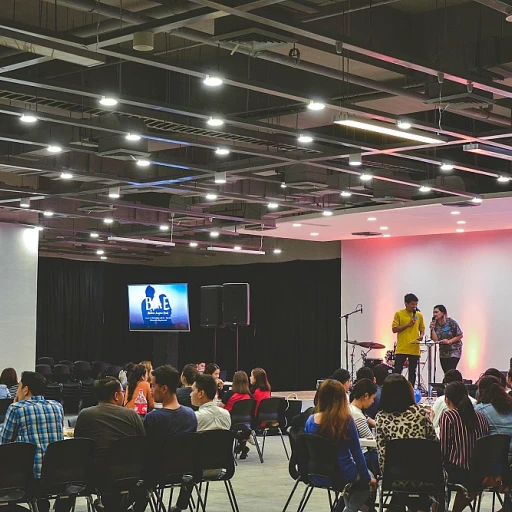
Understanding the Coaching Relationship in Reskilling
The Foundation of a Successful Coaching Relationship
Understanding the coaching relationship in reskilling is crucial for anyone looking to enhance their skills and adapt to the ever-changing job market. A successful coaching relationship is built on trust, effective communication, and a shared commitment to the coachee's personal and professional growth. The role of a coach is not just to impart knowledge but to guide the client through a process of self-discovery and skill acquisition.
In a coaching relationship, the coach will help clients set clear, achievable goals. These goals become the roadmap for the coaching sessions, providing structure and direction. Clients feel more engaged when they see a clear path towards their objectives, and this engagement is a key factor in the success of the coaching process.
Trust is another cornerstone of effective coaching relationships. Clients must feel confident in their coach's ability to guide them through challenges and support their growth. Building trust requires consistent communication and a genuine interest in the client's development. Relationship coaches often emphasize the importance of listening and empathy, which help create a safe space for clients to express their concerns and aspirations.
Moreover, the relationship between a coach and client should be dynamic and adaptable. As clients learn and grow, their needs and goals may evolve. Coaches need to be flexible and responsive, adjusting their strategies to meet the changing demands of the coaching relationship. This adaptability ensures that the coaching remains relevant and effective throughout the reskilling journey.
For those interested in exploring the benefits of coaching further, building confidence with a career coach can provide additional insights into how coaching can facilitate personal and professional growth.
Key Elements of Effective Coaching Relationships
Establishing Trust and Communication
One of the essential elements of a successful coaching relationship in reskilling is the establishment of trust between the coach and the client. Trust forms the foundation of all meaningful relationships and is particularly vital in a coaching context, where personal growth and development are at stake. A coach who fosters a trusting environment encourages clients to be open about their goals and challenges, which can significantly enhance the coaching process.
Goal Alignment and Client Engagement
Coaches play a crucial role in aligning their approach with the specific goals of each coachee. Well-defined goals provide a clear direction and ensure that both parties are working towards a common purpose. Effective coaching relationships rely on this alignment to keep clients engaged and motivated. Therefore, it is essential for relationship coaches to actively listen and tailor their strategies to meet the unique needs of their clients.
Active Listening and Communication Skills
Communication is more than mere conversations; it's about actively listening to what the clients have to say. Coaches who excel in listening can better understand the underlying issues that may affect a client’s progress. Active listening also fosters a sense of being heard and valued, which enhances the growth potential of the client. To build confidence with a career coach, clients should feel supported and appreciated throughout the coaching process.
Commitment to Ongoing Learning and Development
Both coaches and clients should commit to continuous learning and development to remain relevant in a rapidly changing work environment. Successful coaching relationships are characterized by a shared commitment to acquiring new skills and understanding complex concepts. This commitment will help ensure that clients not only meet but exceed their professional goals.
By focusing on these key elements, coaching relationships in the reskilling context can lead to remarkable transformations in the personal and professional lives of clients, driving both individual success and organizational growth.
Challenges in Coaching for Reskilling
Identifying Potential Obstacles in Coaching Dynamics
One major factor that can impact coaching relationships, especially when focused on reskilling, is the potential for communication barriers. Achieving a successful coaching relationship requires clear and open communication so that both the coach and the client can align their goals and ensure mutual understanding. This means that coaches must actively listen and adapt their style to meet the individual needs of each client, fostering an environment of trust. Another common challenge is establishing and maintaining trust. Trust coaching is fundamental because when clients feel acknowledged and respected, they are more likely to engage openly in the coaching process. Trust is built gradually through consistent and transparent communication, and it's essential for effective coaching. Coaches need to demonstrate sincerity, reliability, and competence to facilitate personal growth and skills development. Coaches may also face difficulties in setting realistic goals with their coachees. While it is crucial to aim for growth, it's equally important to ensure these goals are achievable. Unrealistic expectations can lead to frustration and disengagement. Effective coaches will help bridge the gap between ambition and practicality, allowing clients to experience consistent progress and build confidence over time. Finally, balancing individual customized learning paths with organizational objectives can present challenges. While personalized learning paths are instrumental for employee engagement, it requires skill from the coach to ensure that these paths align with the broader organizational goals. Balancing the needs of individuals with those of the company is a complex issue and requires adept relationship-building skills from the coach. For a deep dive into creating learning paths, enhancing your career with an Arabic language translation training program might offer useful insights on personalized learning tailored to specific growth areas. Navigating these challenges is an integral part of the coaching journey and critical to achieving long-term success in enhancing skills via coaching relationships.Strategies to Enhance Coaching Relationships
Strategies to Strengthen the Bond for Productive Outcomes
Creating effective coaching environments hinges on the establishment of strong, trust-filled coaching relationships. It's important to focus on communication as a foundational element that will help both the coach and client navigate the reskilling process effectively.- Open Communication: Clear and open communication is paramount. Coaches should create an environment where clients feel comfortable sharing their goals, challenges, and aspirations. By encouraging dialogue, coaches can tailor their approach to meet the unique needs of each coachee, fostering personal growth.
- Regular Feedback: Incorporating regular feedback sessions can significantly enhance the trust component in coaching relationships. Coaches should provide honest, constructive feedback that focuses on the coachee's progress towards their desired skills and goals. This ongoing communication helps in adapting strategies, ensuring that the client feels supported and valued.
- Building Trust: Trust in coaching not only facilitates open exchanges but also empowers clients to engage more deeply in the reskilling journey. Coaches can build trust by demonstrating reliability, competence, and a genuine commitment to their client’s growth. This relationship-building is essential for successful coaching.
- Customized Learning Paths: When coaches develop personalized learning paths, it aligns the coaching journey with the client's specific needs and aspirations. This dedication to a customized approach shows the coachee that their development is a priority, enhancing client engagement and satisfaction.
- Client Empowerment: Empowering clients to take charge of their learning process can lead to greater outcomes. Coaches should focus on facilitating skills that will help the coachees learn to self-direct their growth and confidently work towards their goals.
The Role of Personalized Learning Paths
Crafting Personalized Learning Paths for Effective Reskilling
In the journey of reskilling, one size does not fit all. Personalized learning paths are crucial in tailoring the coaching process to meet the unique needs and goals of each coachee. These paths are designed to align with the individual's aspirations, current skills, and the demands of their desired roles. By focusing on personalized approaches, coaches can foster a more engaging and successful coaching relationship.
Personalized learning paths require a deep understanding of the coachee's strengths and areas for growth. This involves open communication and trust between the coach and client, which are foundational elements of any effective coaching relationship. Trust coaching is essential as it encourages clients to be open about their challenges and ambitions, allowing the coach to tailor the learning experience accordingly.
To build these customized paths, coaches often start by conducting a thorough assessment of the client's current skills and competencies. This assessment helps in identifying gaps and setting realistic, achievable goals. With clear goals in place, the coaching process can be structured to ensure that each session builds towards these objectives, promoting personal growth and skill development.
Moreover, personalized learning paths enhance the client's motivation and engagement. When clients feel that the coaching sessions are directly relevant to their personal and professional aspirations, they are more likely to invest time and effort into the process. This investment is crucial for achieving the desired outcomes and for fostering a successful coaching relationship.
Effective coaching also involves regular feedback and adjustments to the learning path. As clients progress, their needs may evolve, requiring the coach to adapt the strategy to continue supporting their growth. This dynamic approach ensures that the coaching remains relevant and impactful, ultimately leading to more meaningful and sustainable results.










